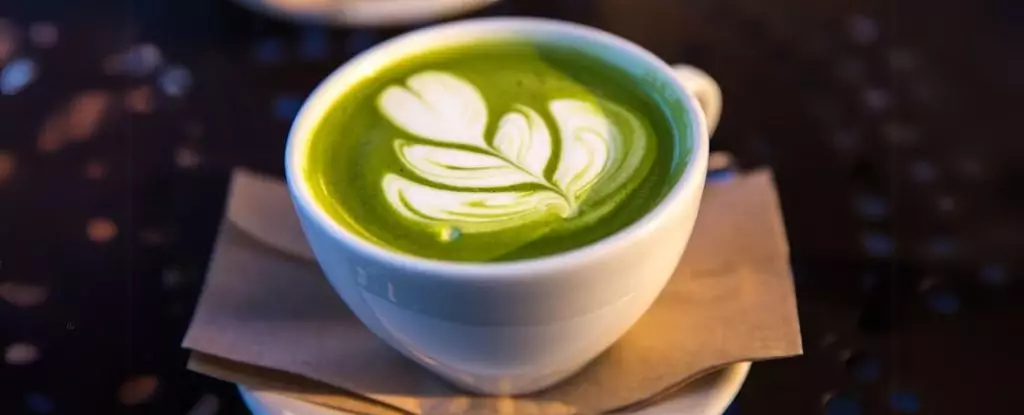Matcha, that strikingly green powder known for its myriad health claims, has emerged as a popular choice among health enthusiasts. Rooted deeply in rich history and cultural heritage, particularly in Japan, matcha stems from the camellia sinensis plant, sharing its lineage with green and black teas. The discernible difference, however, lies in matcha’s unique cultivation and preparation techniques. Unlike the fermentation process that black tea undergoes or the simple drying that green tea experiences, matcha is meticulously shade-grown for several weeks before harvest. This specialized approach significantly enhances crucial elements such as chlorophyll levels, amino acids, and antioxidants, giving matcha its vibrant color and distinctive flavor. The leaves are then dried and ground into a fine powder, a process that retains all the nutritional benefits since you consume the whole leaf instead of merely steeping it.
A Taste of Tradition: The Cultural Significance of Matcha
Though intimately associated with Japanese tea ceremonies, matcha’s origins trace back to China, dating back centuries. It was the travels of Buddhist monks in the 12th century that introduced this ceremonial tea to Japanese culture, where it took on heightened importance and eventually became an integral aspect of Zen philosophies. Over time, matcha has transcended its traditional roots, now captivating the modern wellness community as a versatile ingredient found in smoothies, lattes, and even desserts. This blend of history and modern adaptation illustrates matcha’s versatility and its ability to adapt while still retaining a deep cultural significance.
The Health Claims: What the Science Says
When it comes to health benefits, matcha is heralded for a plethora of claims ranging from antioxidant properties to potential anti-cancer effects. Due in large part to its high content of polyphenols, particularly flavonoids, matcha is believed to diminish oxidative stress, enhance cognitive function, and even bolster heart health. Yet, caution is warranted; most of these assertions emerge from preliminary studies conducted on cells or animals, not robust clinical research involving humans. Therefore, while it’s tempting to crown matcha as a superfood, one must approach these health claims with a critical mindset, remaining conscious of the difference between promising laboratory results and applicable everyday health benefits.
Matcha vs. Coffee: The Battle of Caffeine
Perhaps one of the most intriguing comparisons is between matcha and coffee. Both beverages offer a caffeine boost, but matcha presents a more nuanced experience. While matcha typically contains less caffeine than coffee, it also boasts a unique component—L-theanine—an amino acid that mediates the jitteriness often associated with caffeine consumption. This means that while coffee may spike your energy levels instantly, matcha offers a steadier rise and fall, promoting a mellow alertness instead. However, consumers must remember that the ideal amount of caffeine varies from person to person, and moderation remains key.
The conversation around caffeine also opens the door to discussions regarding iron absorption. Both matcha and coffee possess substances like tannins and polyphenols that can obstruct iron uptake, especially from plant-based sources. Therefore, for individuals who are already susceptible to low iron levels, it’s advisable to consume these beverages separately from meals to mitigate any adverse effects.
Digestion and Preferences: Matcha’s Gentler Touch
The acidity of coffee can sometimes lead to digestive discomfort or reflux for those with sensitive stomachs, rendering it unsuitable for everyone. Matcha, in contrast, may be the gentler alternative, providing individuals with an opportunity to experience the benefits of caffeine without the harsh side effects. The calming attributes of L-theanine enhance matcha’s appeal, particularly for those who might experience anxiety. Fun and pleasantly stimulating, matcha can serve as an anchor for a mindful tea ritual during stressful days.
Finding Your Balance: The Best Choice for You
Ultimately, the choice between matcha and coffee boils down to personal preference and individual health considerations. Coffee is well-established with clearer guidelines for consumption, appealing to those who thrive on its robust flavors and experience enhancing properties. Meanwhile, matcha emerges as a favored choice for health-conscious individuals seeking a lower caffeine consumption combined with rich doses of antioxidants. It nourishes the body while satisfying the spirit, making it a thoughtful option for those interested in both wellness and tradition.
The allure of matcha is undeniable. It captivates not only with its vibrant color or its rich historical tapestry but also with an array of potential health benefits. However, as the wellness trend leans towards sustainability and authenticity, let’s remember that no single food can be a panacea. Moderation, mindful consumption, and genuine appreciation of these beverages are what ultimately guide us towards healthier lifestyles.

